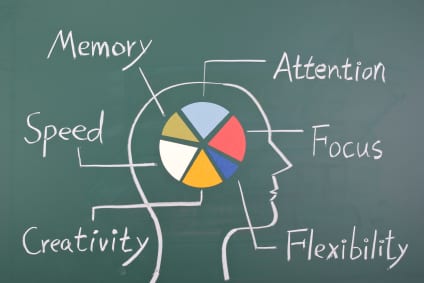How to Improve Your Concentration and Focus
In a world that often demands our attention on multiple fronts, concentration and focus have become prized skills. Whether you're a student aiming to excel in academics, a professional working on complex projects, or simply someone striving for personal growth, the ability to concentrate deeply and focus on tasks can significantly enhance your productivity and overall well-being.
However, with the constant influx of distractions—both external and internal—achieving and maintaining high levels of focus can be challenging.
This article explores strategies to help you improve your concentration and focus, ultimately empowering you to achieve your goals more effectively.
Understanding the Science of Focus

Concentration and focus are not just mental abilities; they are processes deeply rooted in the brain's functioning. The prefrontal cortex, responsible for decision-making, attention, and self-control, plays a central role in our ability to focus.
Neurotransmitters like dopamine and norepinephrine also significantly affect our attention span. When these neurotransmitters are balanced, they help sustain attention and drive motivation. However, when they are out of balance—often due to stress, fatigue, or distractions—our ability to concentrate diminishes.
Distractions are a natural part of life, but understanding how they affect the brain can help you manage them more effectively. External distractions, such as noise or interruptions, and internal distractions, like stress or wandering thoughts, activate different parts of the brain. The key to improving concentration lies in training the brain to recognize and manage these distractions, allowing you to maintain focus for longer periods.
Techniques to Enhance Concentration

Mindfulness and Meditation
Practicing mindfulness and meditation can significantly enhance your concentration. Mindfulness trains your brain to stay in the present moment, reducing the tendency to get lost in distractions. Meditation, on the other hand, helps you develop control over your thoughts, allowing you to focus better on tasks. Regular practice of these techniques strengthens the prefrontal cortex, improving your ability to concentrate over time.
Structured Work Environment
Creating an environment conducive to concentration is essential. A cluttered workspace can lead to mental clutter, making it difficult to focus. Organize your work area by removing unnecessary items and minimizing distractions. Use tools like noise-canceling headphones or ambient music to block out background noise. Additionally, set specific times for focused work sessions, during which you eliminate all potential distractions, such as phone notifications or social media.
The Pomodoro Technique
The Pomodoro Technique is a time management method that can help you improve focus. It involves breaking work into intervals, typically 25 minutes long, followed by a short break. This technique leverages the brain's natural attention span, allowing you to concentrate fully during the work interval and recharge during the break. Over time, it helps condition your brain to focus more effectively for sustained periods.
Healthy Lifestyle Choices
Your physical health plays a crucial role in your ability to concentrate. Regular exercise increases blood flow to the brain, enhancing cognitive functions, including focus. A balanced diet rich in omega-3 fatty acids, antioxidants, and vitamins supports brain health. Additionally, getting adequate sleep is vital; sleep deprivation impairs cognitive function, making it difficult to concentrate. Hydration is equally important—dehydration can lead to fatigue and reduced concentration.
Overcoming Common Focus Challenges

Digital Distractions
In the digital age, distractions are just a click away. To combat this, consider using apps and tools that limit your access to distracting websites during work hours. Establish clear boundaries between work and leisure time to prevent digital distractions from seeping into your focused periods. Additionally, practice digital detoxes, where you disconnect from all digital devices for a set period to reset your brain and improve focus.
Mental Fatigue
Mental fatigue is a common barrier to sustained concentration. When your brain is tired, it becomes more difficult to focus. Combat mental fatigue by taking regular breaks, getting fresh air, and engaging in activities that relax your mind. Incorporating physical activity into your routine can also help reduce mental fatigue, as exercise has been shown to improve overall cognitive function.
Multitasking Myths
Many people believe that multitasking improves efficiency, but research shows the opposite. Multitasking divides your attention and reduces the quality of your work. Instead, practice single-tasking—focusing on one task at a time until it's completed. This approach allows you to dive deeper into the task, improving both your concentration and the quality of your work.
Stress Management
Stress is a major enemy of concentration. When you're stressed, your body releases cortisol, which can impair cognitive function and make it difficult to focus. Incorporating stress management techniques, such as deep breathing exercises, regular physical activity, and sufficient rest, can help reduce cortisol levels and improve your ability to concentrate. Mindfulness practices, as mentioned earlier, are also effective in managing stress and enhancing focus.
Building Long-Term Focus Habits
Improving concentration and focus is not a one-time effort but a long-term commitment. Developing habits that support sustained focus will yield the best results. Start by setting clear, achievable goals that motivate you to stay focused.
Break larger tasks into smaller, manageable chunks to avoid feeling overwhelmed. Consistency is key—regular practice of focus-enhancing techniques will strengthen your brain's ability to concentrate.
Additionally, monitor your progress. Reflect on what techniques work best for you and adjust your approach as needed. Over time, as you build these habits, you'll notice an improvement in your ability to focus on tasks for extended periods, leading to greater productivity and success in your endeavors.
Conclusion
In a world filled with distractions, improving your concentration and focus can seem like a daunting task. However, by understanding the science behind focus, implementing effective techniques, overcoming common challenges, and building long-term habits, you can enhance your ability to concentrate and achieve your goals. Whether in your personal life or professional pursuits, the benefits of improved concentration are far-reaching, leading to greater productivity, success, and overall well-being.
Sources
- How to Improve Concentration: 12 Science-Backed Tips and Tricks
- Mindfulness and Concentration - American Psychological Association
- The Pomodoro Technique: Why It Works & How to Do It
- The Impact of Nutrition on Focus and Concentration
- Exercise and Brain Health - National Institutes of Health
- Why Sleep Is Essential for Optimal Focus
- The Effects of Stress on Your Body and Mind
- The Myth of Multitasking - Why We Should Focus on One Task at a Time
- Digital Detox: Unplug to Improve Your Concentration
- Optimizing Your Work Environment for Focus



































